Integrated Decentralized Solid Waste Management in 4 Wards under Suar Nagar Palika Parishad using ‘No Open Waste’ [NOW] Approach.
Background
- Suar Nagar Palika Parishad (Suar NPP) is the governing body for the city of Suar in District Rampur, Uttar Pradesh
- The Urban Local Body (ULB) was keen to introduce a scientific and modern, end-to-end solution for effective management of the municipal solid waste generated in the city, in accordance with the Solid Waste Management (SWM) Rules, 2016
- The city had engaged a private vendor for street sweeping and Collection & Transportation of municipal solid waste across its 25 wards, who used to collect and dump waste in dumping sites
- No formal SWM system existed and garbage was dumped on drains, road sides etc
Feedback Foundation Charitable Trust (FF) is a leading provider of sustainable sanitation solutions across Rural and Urban India and has experience in making urban communities ‘No Open Waste’ on a sustainable basis. Suar NPP engaged FF for Integrated Solid Waste Management solutions, FF team then visited the NPP along with representatives from Suar NPP and potential wards for SWM were selected. The site near Valmiki Basti in Ward no 1 was selected for development of a waste management unit, ‘Sanitation Park’ for catering to the waste generated in adjacent 4 wards (Ward nos. 1, 6, 12 and 14).
Situational Assessment



- Before launching the Pilot Project, in order to plan towards meeting the objective, situational assessment of Ward nos. 1, 6, 12 and 14 of Suar NPP, was done by inclusive and participatory methods.
- During situational assessment, discussions were held on various topics viz. waste minimization, waste segregation and other aspects of Solid waste management. FF focuses on minimization of waste and segregation of waste at source as the two most crucial aspects of Solid Waste Management.
- Furthermore, the team visited the dumping points of waste in each ward to assess the present system of disposal of waste.
- Each ward was divided into clusters for enabling proper coverage of every ward. Route Map of each ward was made.
- Ward No. 1: Ward No. 1 was divided into 7 clusters. 29 Dumping Points were found in the ward during assessment and 15 garbage bins were found to be placed in various locations.
- Ward No. 6: Ward No. 6 was divided into 04 clusters. 12 Dustbins were found to have been placed at various locations.
- Ward No. 12: Ward No. 12 was divided into 04 clusters. 22 dumping points were found in the ward during assessment.
- Ward No. 14:
- Ward No. 14 was divided into 04 clusters. 20 dumping points were found in the ward during assessment and 8 garbage bins were located in the ward.
- Waste generators were identified in all the 4 wards and list was made of domestic, commercial and institutional waste generators.
Creating an enabling environment for sustainable ‘NOW’ status
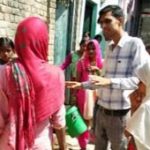
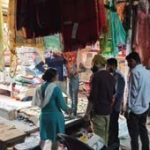
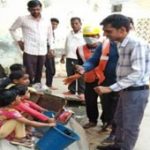
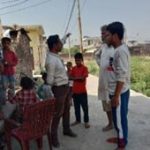
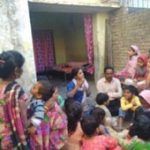
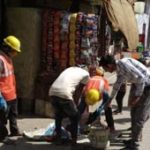
- Door to door visits and visiting other establishments was focused on segregation at source.
- Importance of segregating waste is shared and segregation of waste in 4 categories demonstrated.
- Waste minimization options were also shared.
- Citizens accepted the concept of segregation of waste at source and started using different bins.
- Awareness Campaigns conducted in the selected wards
Capacity Building & Mass Mobilization
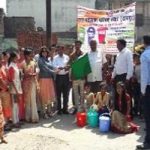
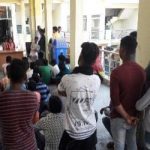
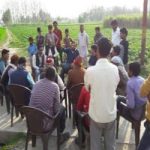
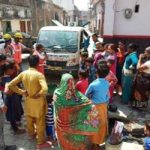
- Capacity Building of Collection Boys done.
- Mass Mobilization conducted in all the 4 wards.
- Sector triggering conducted with women, children, youth, senior citizens, anganwadi workers etc.
- Rallies conducted to spread awareness and make it a collective long-term initiative.
- IEC activities conducted in market place, Government offices, institutions and residential areas for mobilization of citizens towards waste minimization and segregation of waste at source.
- In-situ composting encouraged, citizen’s mobilized to use cloth bags in place of plastic bags.
Collection & Transportation


- Route Map for C & T prepared.
- Timely Collection & Transportation of waste ensured.
- PA system installed in all collection vehicles for announcement during collection time.
- Collected segregated waste transported to the Sanitation Park.
- The Collection Vehicles have been colour coded and messages on segregation of waste and its categories are displayed.
- Personal Protective Equipment (PPE) including Uniform, safety hats, masks, gloves, boots etc. provided to Collection and Transportation personnel and manpower at the sanitation park and usage ensured.
Monitoring & Follow Up
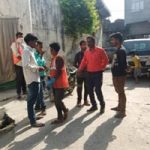
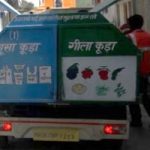
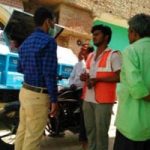
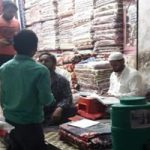
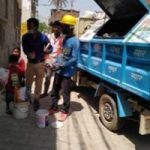
- Regular Follow up continued to ensure sustainability of segregation at source and proper collection and transportation.
- No mixed waste is collected.
Monitoring & Supervision
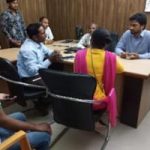

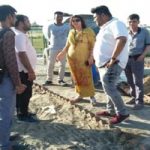
- The Project is monitored on a regular basis at different levels i.e. by monitoring the daily activities done in the project area through WhatsApp group by the head office of Feedback Foundation and organizing monthly review and planning meetings.
- Besides this, Suar NPP monitors the activities linked with the same WhatsApp group on day to day basis.
- Regular field visits conducted and valuable inputs given for smooth implementation of planned to achieve the desired outcomes of the project.
- Periodic review meetings conducted.
- Monthly Progress Reports shared with client.
Sanitation Park
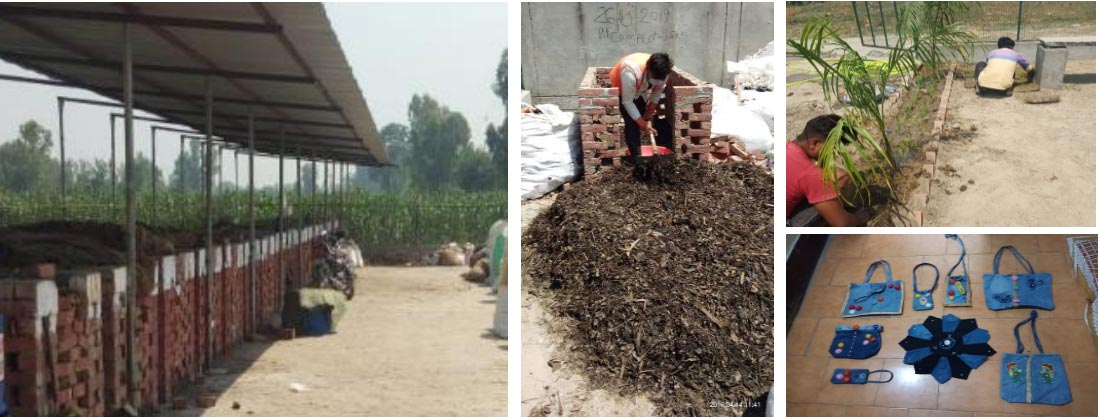
- "Sanitation Park" provides end to end treatment of waste generated by the waste producers of Ward nos. 1, 6, 12 and 14 on day to day basis.
- The segregated waste transported by the collection vehicle is off-loaded on Segregation Platform in the Sanitation Park. The waste is then weighed, following which secondary and tertiary segregation of dry waste is done.
- Dry waste is segregated into 28 categories, cleaned and stored in separate labelled sacks for selling it to recyclers.
- Composting of wet waste is done.
- Value- added products are also made from recyclable materials.
- Biomedical waste is sent to Incinerator for incineration.
- Linkage with recyclers, dismantlers done under Extended Producer Responsibility (EPR).
Initial Challenges
- Non availability of land
- User-charge system not in place
- No formal solid waste management system
- Ignorant about SWM Rules 2016
- Sanitation workers were not trained
- Rampant dumping spots
- Segregation of waste not in practice
Key Achievements
- >90% segregation of waste at source by all waste generators
- No waste visible in 4 wards under the Pilot Project
- No incidence of open littering/dumping of waste
- >50% wet waste generated utilized within the wards through in-situ composting and other eco-friendly mechanisms
- Visible impact on quality of life of sanitary personnel, informal rag-pickers and waste collectors
- Dumping sites cleared
- Linkages created for recyclable waste generated by the wards
- Domestic hazardous waste treated in an eco-friendly manner
- <10% residual insert waste sent to the sanitary landfill site
- Sanitation Park developed and support services, manpower and technology deployed
- 15-20% of waste reduction achieved
- Significant savings in Collection & Transportation expenditure
